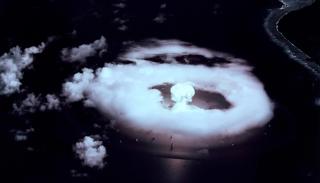
Breadcrumbs navigation
Nuclear weapons, extinction, and the Anthropocene: reappraising Jonathan Schell
In their new article for BISA journal Review of International Studies, Rens van Munster and Casper Sylvest argue that it is vital to revisit the nuclear-environment nexus of the Cold War to trace genealogies of today's intricate constellation of security problems.
BISA Director, Juliet Dryden, spoke to Rens and Casper to find out how Schell's work remains deeply relevant for rethinking human–Earth relations and confronting the Anthropocene.
BISA members receive access to RIS (and our other journal European Journal of International Security) as a benefit of membership. To gain access log in to your BISA account and scroll down to the 'Membership benefits' section. If you're not yet a member join today.
Full article abstract
In the Anthropocene, International Relations must confront the possibility of anthropogenic extinction. Recent, insightful attempts to advance new vocabularies of planet politics tend to demote the profound historical and intellectual links between our current predicament and the nuclear age. In contrast, we argue that it is vital to revisit the nuclear-environment nexus of the Cold War to trace genealogies of today's intricate constellation of security problems. We do so by reappraising the work of Jonathan Schell (1943–2014), author of The Fate of the Earth (1982), who came to regard extinction as a defining feature of the nuclear age. We show how a deep engagement with nuclear weapons led Schell to an understanding of the Earth as a complex, delicate ecology and fed into a sophisticated, Arendtian theory of extinction. Despite its limitations and tensions, we argue that Schell's work remains deeply relevant for rethinking human–Earth relations and confronting the Anthropocene.
Photo by Science in HD on Unsplash


